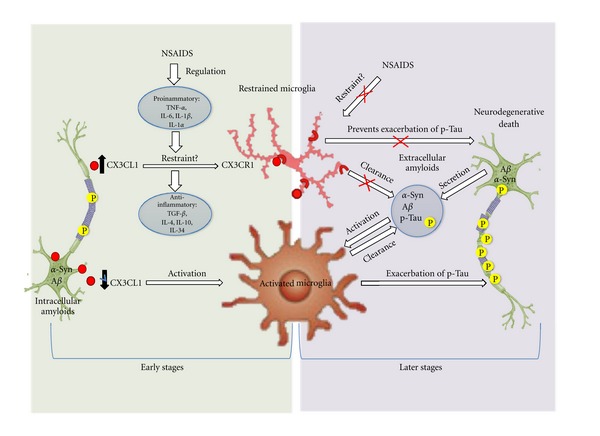Figure 2.

Modulation of CX3CL1 in early versus late disease stages. The success of anti-inflammatory treatment in neurodegenerative diseases likely depends on the stage of disease progression. Treatment with NSAIDS early in disease pathology may alter the levels of various proinflammatory markers, including TNF-α, IL-6, IL-1β, and IL-1α, and anti-inflammatory markers, including TGF-β, IL-4, IL-10, and IL-34. The changes in the levels of these cytokines may lead to altered CX3CL1 signaling, which would either increase microglial activity (if CX3CL1 were reduced) or restrain microglia (if CX3CL1 levels were increased). In later stages of disease, secretion of pathogenic proteins like Aβ, α-synuclein, and p-Tau to the extracellular space increases microglial activation. Microglial activity promotes p-Tau, which destabilizes microtubules and leads to cell death. Treatment with NSAIDS in later stages of disease would likely be detrimental, as restraining microglia would weaken the immune response to remove extracellular protein aggregates.
